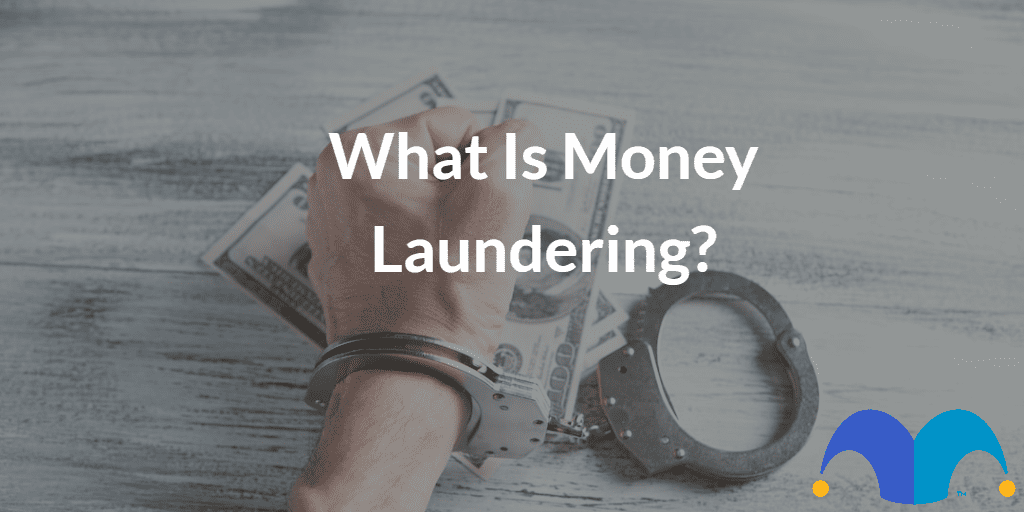Much like it sounds, money laundering is the act of cleaning dirty money. In this case, dirty money refers to money gotten through illegal means, and cleaning it means making it look like it was obtained legally.
Money laundering is illegal, and it’s a serious problem in the financial systems. Global banks often devote significant resources to fighting it to ensure that they’re not enabling criminals.
In this look at money laundering, you’ll learn what it is, how it works, and why it matters.
What is money laundering?
Money laundering is the process of making illegally gotten financial assets appear as though they were obtained legally. All kinds of criminals use money laundering, including drug dealers, terrorists, arms dealers, white-collar criminals, and thieves. Laundering makes the money they use untraceable to criminal activity.
Money laundering generally involves a three-step process. Ill-gotten money is placed with a financial institution, often offshore. This is known as placement. From there, the money goes through “layering,” which refers to a complex series of transactions to obscure the source of the money and make auditing difficult. Finally, the money is integrated in the financial system to make it appear like it was obtained legally; one common way to do this is through purchasing real estate.
Why it matters
According to the United Nations Office on Drugs and Crime, money laundering schemes account for a whopping 2%-5% of global GDP, or roughly $2trn (£1.6trn). Meanwhile, according to the identity verification group, Credas, money laundering in the United Kingdom accounts for 4.3% of GDP. That’s approximately £87.9bn of illegal funds entering the UK every year1.
Banks and law enforcement agencies work together to fight money laundering through coordinated anti-money laundering systems and policies, know-your-customer practises so banks understand who they’re doing business with, and monitoring for suspicious transactions. Banks also rely on cybersecurity systems to deter fraud and reduce vulnerability to illegal activities.
Money laundering is a difficult problem to stop because there are so many different ways to do it, and there is so much banking activity to search through. Criminals are always looking for creative ways to launder their money and stay ahead of law enforcement.
What you should know about money laundering
Money laundering imposes a larger cost on society by giving criminals funds to run illegal activities. But these criminals can also prey on everyday citizens through phishing scams and other techniques that allow them to use your bank account to clean their money. Examples might include an email telling you you’ve won a prize or informing you that you have inherited money from a long-lost relative as a pretext for collecting your banking information. Sometimes, they even start on online dating websites.
If you suspect you’ve been the target of a money laundering scheme, the best thing to do is to cut off all communication with the criminal in question and report it to your financial institution and local law enforcement, especially if you’ve given the criminal your personal information.
Like most things in life, if an unsolicited email or offer sounds too good to be true, it probably is.
How money laundering works
There are a number of different ways to launder money, but here are some of the more famous examples.
In 2010, before its merger with Wells Fargo (NYSE:WFC), Wachovia Bank allowed drug cartels in Mexico to launder an estimated $380bn. The drug cartels smuggled US dollars back across the border to Mexico. From there, they converted them into pesos and deposited the currency into their personal bank accounts. Wachovia was eventually penalised by the US government with a $160m fine.
Similarly, drug cartels used HSBC Holdings (LSE:HSBA) to launder $1bn as they exploited the bank’s poor oversight. The bank was forced to pay a fine of almost $1.9bn.
Recently, UK banks have been getting the spotlight. Natwest Group (LSE:NWG) was fined £265m at the end of 2021 for failing to prevent £400m from being laundered through it. This actually marked the first criminal money laundering case from regulators against a British Bank. And it seems the Financial Conduct Authority is now probing Barclays (LSE:BARC) for evidence of money laundering as well.
Although money laundering doesn’t often get attention from investors, it is a significant drag on the global economy, and a major incidence of money laundering has the potential to crush a stock.
For banks, the consequences of not preventing money laundering can be expensive, adding another incentive to hire compliance and anti-money laundering personnel to reduce the risk. For financial stocks and other companies on the front lines in the fight against money laundering, ensuring proper prevention is key for maximising performance.
As investors look forward to the next bull market, money laundering remains one of several challenges facing the global economy. With improving technology and artificial intelligence, however, banks and law enforcement agencies may be able to turn the tide on these criminals.
